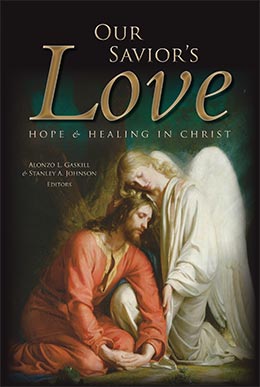Introduction
At the core of the human experience is the ever so difficult task of seeing things “as they really are” (Jacob 4:13). And paramount in that process is discovering for oneself both the reality of Christ’s love and also the personal experience of that love. (Knowing the doctrine that He loves us is most certainly not the same as experiencing in one’s own life the manifestation of that love.)
When the miracle happens—when we actually, really know, understand and feel of our Savior’s love—we are transformed; we are changed in our understanding of what that divine love is, but also changed in our nature and being because of what that love does to us. In so many ways, the actual encounter of our Savior’s love chips away at that natural man which is an enemy of all righteousness (Mosiah 3:19; Moroni 9:6). It is the encounter with God’s love that causes us to desire—to desperately desire—to submit our wills and lives to God’s will and way. And through that desire our lives can be filled with hope in Him and healing through Him who is mighty to save (2 Nephi 31:19; Alma 7:14). Elder Neal A. Maxwell explained: “Submissiveness involves an invitation to come to grips with reality—to come into harmony with ‘things as they really are.’ Only then, proceeding from where one now is, can genuine spiritual progress be made.”[1] Indeed! And when we finally experience that sacred transition from an intellectual belief in God’s love to an actual encounter with our Savior’s love, the natural result is a holy other-centeredness, and a sacred concern for those whom God has placed in our midst. Again, from Elder Maxwell: “When we see ‘things as they really are,’ we shall see others and ourselves as we really are.”[2] And, like Enos of old, once we hear God’s Spirit whisper “thy sins are forgiven thee” (Enos 1:5), our natural response is to “feel a desire for the welfare of” our brothers and sisters—and to “pour out” our “whole soul unto God for them” (Enos 1:9). Our Savior’s love enables us to see ourselves in proper perspective and, thereby, to see others as God sees them, and to love them deeply, as he loves them.
And so now, in commemoration of God’s ultimate act of adoration for His creations, we present to you these testaments of our Savior’s love; and their accompanying invitations to “come unto Christ, and be perfected in him, …that by his grace ye may be perfect in Christ” (Moroni 10:32). May the perspectives and testimonies born on the pages of this small book fill you with love—for God, and for all humanity. And may they inspire you to exercise hope in Christ that you might experience his healing influence in your life and convey that gift to all whom God places within your scope of influence.
Notes
[1] Neal A. Maxwell, Even As I Am (Salt Lake City, UT: Deseret Book, 1982), 43.
[2] Neal A. Maxwell, All These Things Shall Give Thee Experience (Salt Lake City, UT: Deseret Book, 1980), 62.
